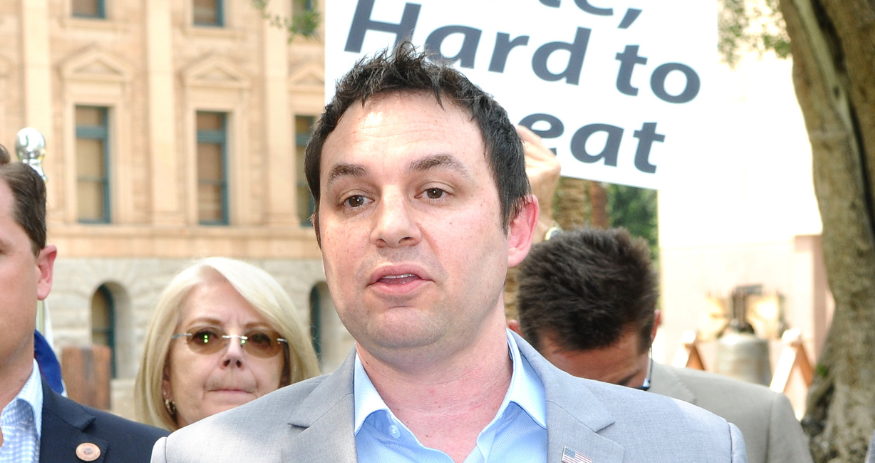Ballot measure targets citizen initiatives prior to election
Kiera Riley Arizona Capitol Times//September 5, 2024//
Ballot measure targets citizen initiatives prior to election
Kiera Riley Arizona Capitol Times//September 5, 2024//
A ballot measure crafted to allow legal challenges to the constitutionality of voter initiatives before placement on the ballot is poised to upend decades of case law if approved in November.
Current court holdings only allow courts to strike down citizen ballot measures based on failings in form, like a violation of the single subject or separate amendment provisions, or for signature requirements, and prohibits assessing substantive violations of the U.S. or state constitution until after the election.
Proposition 136, referred to the ballot by the Legislature last session, would open the door to legal challenges during the signature gathering process and allow the court to weigh in on the true constitutionality of ballot initiatives before a measure heads to voters.
Supporters say the change could save time, money and effort typically invested into getting an initiative passed and would ensure all measures placed on the ballot are constitutional, but opponents contend pre-election litigation could mount high costs as groups simultaneously gather signatures and fight in court and could stymie investments in initiatives altogether.
The Legislature passed Senate Concurrent Resolution 1041, sponsored by Sen. J.D. Mesnard, R-Chandler, along party lines and transmitted the measure to the Secretary of State’s Office in June.
The measure allows for challenges to the constitutionality of citizen proposed ballot measures within at least 100 days before the election.
In unveiling the measure to the Senate Elections Committee in February, Mesnard said challenges “inevitably” follow ballot initiatives, but the current process leads to an adverse result after efforts to see a measure through.
“It’s a lot of disappointment,” Mesnard said. “And that’s following hundreds of thousands or millions of dollars and lots of time spent advocating, getting them passed, only to find out they were unconstitutional.”
He deemed getting litigation out of the way beforehand is the “lesser of the evils.”
“If I were them, I’d rather know earlier in the effort that this thing is going to go south,” Mesnard said.
Greg Blackie, lobbyist for the Arizona Free Enterprise Club, supported the measure through the Legislature.
He said the measure works to “protect our ballot from unconstitutional measures.”
“From our perspective, voters have a right to presume that what’s being put before them on their ballot is constitutional. And so it’s kind of confusing and could be disappointing to vote on a measure only to see it struck down after the fact,” Blackie said. “It’s a lot cleaner to just get it resolved on the front end.”
As it stands now, ballot measures can face constitutional challenges pre-election, but only on form requirements for bringing an initiative to the ballot, number of valid signatures and language in the 200-word description.
The precedent against considering substantive constitutional challenge was established under a 2006 ruling in League of Arizona Cities and Towns v. Brewer, a pre-election challenge to a proposed private property rights ballot measure claiming an alleged violation of the state Constitution Revenue Source Rule.
In a unanimous decision, the Arizona Supreme Court ruled the court could not weigh in on more substantial claims of constitutional violations as doing so would disrupt the legislative process.
“A fundamental component of the legislative process in Arizona is the right of the people to offer legislation through the initiative,” Rebecca White Berch, the vice chief justice at the time, wrote. “And just as the courts may not predetermine the substantive validity of the legislature’s measures, so too must they refrain from predetermining the substantive validity of the people’s initiatives, even if the ‘legislation might conflict with the Arizona Constitution or state law.’”
The same was held in 1997 in Winkle v. City of Tucson, a case concerning a city minimum wage ballot measure.
Justice Stanley Feldman wrote at the time: “Voter initiatives, part and parcel of the legislative process, receive the same judicial deference as proposals before the state legislature – courts are powerless to determine their substantive validity unless and until they are adopted.”
And both cases harkened back to a 1914 opinion, State ex rel. Bullard v. Osborn, which held that giving courts the ability to “assume in advance the power and right to decide whether the proposed measure was invalid would be tantamount to claiming the power of life or death over every initiated measure by the people. It would limit the right of the people to propose only valid laws, whereas the other law-making body, the legislature, would go untrammeled as to the legal soundness of its measures. Such differentiation of powers is expressly prohibited.”
In the years since, the same string of case law threaded through ballot measure challenges in the lead-up to elections. In line with case law, courts have waited until post-election to consider whether a measure is constitutional and taken up pre-election challenges on a limited basis.
And under that system, those spearheading citizens’ initiatives say they can better anticipate legal challenges and budget for the fees that follow.
Stacy Pearson, lead political consultant for the Smart and Safe Arizona campaign to legalize marijuana, said campaigns prepare for the “six week gauntlet where the signatures and the summary and the traditional legal challenges occur.”
But allowing challenges earlier, Pearson said, could keep campaigns in court for more of the election cycle and strain resources on the ground.
“Every dollar that an initiative campaign is spending in court, they’re not spending communicating with voters,” Pearson said. “So doubling, or tripling or even quadrupling the legal budget has a direct impact on the campaign itself.”
She noted, too, the vetting campaigns do to ensure a ballot measure is constitutional, seeking review from both their own attorneys and legislative council.
“It’s reviewed dozens and dozens of times before a voter is asked to sign a petition, or ultimately vote for an initiative,” Pearson said.
Overall, Pearson said the change carries a cost.
“It just makes it more expensive,” Pearson said. “This doesn’t provide better protection to the voters of Arizona. It makes sure that special interests are the only ones that have the funding available to use direct democracy.”













































